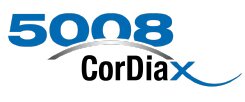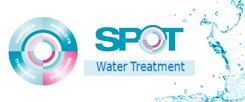Home / FlashMed
FlashMed
| Titolo | Anaemia management in patients with chronic kidney disease: a position statement by the Anaemia Working Group of European Renal Best Practice (ERBP) |
| Autore | Francesco Locatelli1, Adrian Covic2, Kai-Uwe Eckardt3, Andrzej Wiecek4 and Raymond Vanholder5 on behalf of the ERA-EDTA ERBP Advisory Board - 1Department of Nephrology, Dialysis and Renal Transplantation, ?A. Manzoni? Hospital, Lecco, Italy, 2Department of Nephrology, Dialysis and Transplantation, C. I. Parhon University Hospital, University of Medicine Gr. T. Popa, Iasi, Romania, 3Department of Nephrology and Hypertension, University of Erlangen-Nuremberg, Nuremberg, Germany, 4Department of Nephrology, |
| Referenza | Nephrol Dial Transplant 2008; doi: 10.1093/ndt/gfn653 |
| Contenuto | Introduction Over the last few years, much has been done to develop guidelines on the basis of the strongest possible evidence because this allows an accurate description of the quality and/or degree of uncertainty of the recommendations and provides physicians with a valuable tool for judicious decisions. However, creating and updating evidence-based guidelines is extremely costly, and so the nephrological community has been trying to build up a single set of international guidelines under the aegis of Kidney Disease Improving Global Outcomes (KDIGO). As part of this unifying effort, the working group responsible for the 2006 update of the National Kidney Foundation-Kidney Disease Outcome Quality Initiative (NKF-KDOQI) guidelines on anaemia management in patients with chronic kidney disease (CKD), and the 2007 update on haemoglobin (Hb) targets, included members from Europe, Middle East, Mexico and Canada. However, this international effort may not be correctly perceived by European nephrologists, who sometimes feel that differences in practice patterns make it difficult to apply guidelines developed outside Europe; on the other hand, the latest update of the European Best Practice Guidelines (EBPG) may appear outdated in some respects. A specially appointed ERA-EDTA Work Group met in Paris to discuss European guideline planning in early January 2008, and agreed that the Association should continue producing and updating guidelines in collaboration with KDIGO. It also agreed that ERA-EDTA should issue suggestions for clinical practice in areas in which evidence is lacking or weak, which will be presented as ?position statements? rather than clinical guidelines. It was also decided to issue position statements about guidelines (recommendations issued by other bodies, of which the current publication is the first result). Finally, the group opted to change the name EBPG to European Renal Best Practice (ERBP) as a means of acknowledging that, especially in nephrology, it is difficult to generate real ?guidelines? because of the lack of sufficient evidence. In this context, and while awaiting the publication of the KDIGO anaemia guidelines possibly in 2011, an ad hoc work group was commissioned by the ERBP Advisory Board to give its opinion on the ?hot topic? of Hb targets, including recently raised issues that were not covered by KDOQI in 2006. These points are summarized in the present position paper, which is not intended to represent a set of new guidelines as it is not the result of a systematic review of the evidence. |
| Data | 12.01.2009 |
| Lista completa |
|







